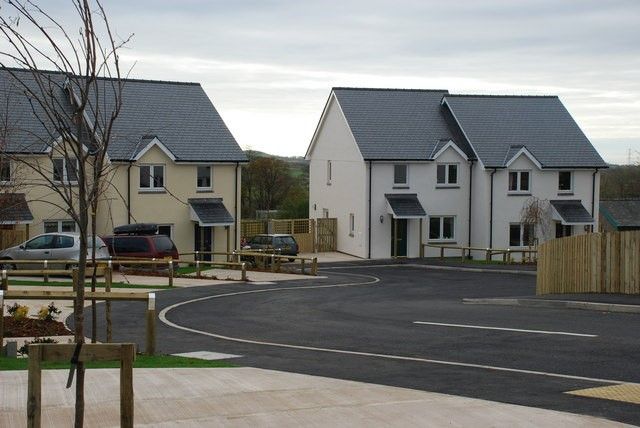
Article posted by
Any discussion on the UK housing crisis jumps straight to supply and demand. Prices and rents have risen as the supply of new homes has not kept pace with the demand. In the past year, house price inflation has been over 7.7 percent. Many private equity groups and real estate firms are turning their heads to affordable housing, which has caused much debate in the real estate industry. With the government’s backing of this form of privatisation, private equity groups are on course to re-shape the market completely.
Housebuilding rates have been rising ever since Margaret Thatcher’s Right-To-Buy shifted social housing to private housing. Over the last decade, the average cost of a house has increased by 50 percent. Many young people are locked out of housing, particularly in London and the South-East. In 2017, Theresa May announced plans to build 25,000 extra social homes in the UK over two years from 2019. The government have promised to invest £2bn in affordable housing, but whether these homes will be truly affordable remains to be seen.
UK house price growth is expected to slow in 2018 due to the Brexit uncertainty. But, private equity and real estate firms’ interest in affordable housing could potentially be a game-changer for the sector. The government is encouraging private equity groups to move into the social housing sector, as one part of their overall strategy to build more homes.

The appeal of social housing for private investors is – primarily – that it offers long-term income that can be pumped back into their social housing delivery. There’s also an appetite among private equity groups to invest in the private rented sector (PRS). This has been driven by their desire to deliver ‘multi-family housing’ and to, ultimately, diversify their portfolios
As the central government has made it easier for private organisations to borrow and access finance to build, it has paved the way for several notable mergers across the sector. Leading residential developer, L&Q recently purchased East Thames Housing to create 90,000 new home organisations. They have a £15bn plan to build 100,000 homes. They envision half of these homes as being genuinely affordable to people on low to moderate incomes. The company has completed a £2.6 billion refinancing package to help meet their goals. They also plan to build a new 6,600 home specialist care and support subsidiary. The new organisation will improve its financial strength and look for opportunities for growth, especially in London and the South East.
While there are clear benefits of mergers in the social housing sector, there are fears these companies are being driven by ambitions to raise capital solely. Supporters however cite that through their sheer financial power, these companies will be able to fund more properties and – most likely – help to alleviate the housing problem.
Another private equity group that illustrates the interest in social housing/PRS is Blackstone investing in Sage Housing Association. Blackstone is one of the world’s leading private equity firms. It intends to buy private developers’ Section 106 allocations. The financial support of Blackstone could help Sage outgun many other housing associations. The team behind the investment at Blackstone will be looking to apply the knowledge gleamed from founding Invitation Homes in the US – which has gone on to become the largest single-family rental company in the United States.
The company may look to scale Sage through buying multiple contributions from builders, as assembling portfolios on this scale can take years. The hope is that the newly-bolstered Sage will be able to deliver great affordable homes on a far wider scale. Blackstone is set for high returns as the company’s investment comes from its €7.8bn Blackstone Real Estate Partners Europe V opportunistic fund. Ultimately, both Blackstone and L&Q have entered the market with their own vision to provide quality housing whilst also growing their portfolios/value as organisations.
With increased focused on housebuilding, output in construction is set to grow. The knock-on effect is set to be a spike in demand for workers, as more occupations need to be filled. Research has predicted that more than 150,000 UK construction jobs are to be created over the next five years. The Construction Industry Training Board predicts 15,350 carpenters and 9,350 labourers will need to be recruited as more home are built. Also, it’s expected there will be strong growth in managerial roles in the sector.
The debate around affordable housing will continue to rumble on and cause noise across the real estate sector. Building new homes will continue to be a priority in 2018 and private equity groups are set to become increasingly significant players in the UK’s social housing sector.
We’re here if you need help defining a role or brief, specialist insight to help shape your ideas or expert help with your recruitment process. Just get in touch to arrange a conversation with one of the team or if you’re ready for us to find the perfect person for you, send us your brief.
If you’re looking for your ideal job send your CV to us to get started or search for the latest job vacancies and we’ll get the ball rolling.